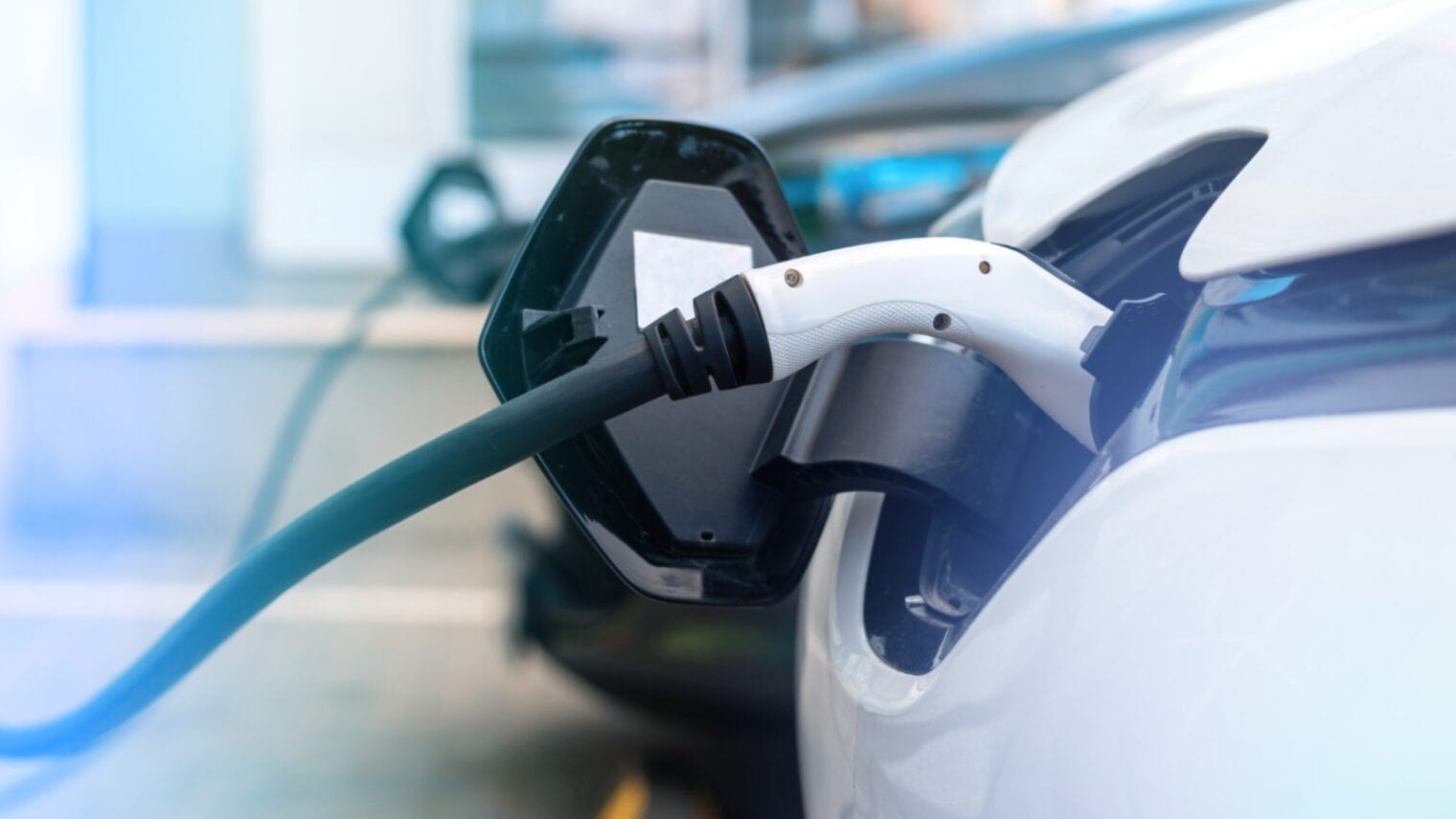The fossil-fuel-fed internal combustion engine (ICE) is on its way to becoming a fossil itself, replaced by battery-powered and plug-in hybrid electric vehicles (EVs).
The e-mobility revolution was a long time in coming – the first electric car was built before the turn of the 20th century – because only recently has technology advanced enough to make it possible.
From 2017 to 2022, EV sales jumped from around 1 million to more than 10 million. The total number of EVs now on the world’s roads is 26 million, up 60 percent from 2021, according to an International Energy Agency report.
“The automotive industry’s mind is already made up about EVs. That’s where they are placing their bets. By and large, they are not going to develop new ICE car engines,” says Shraga Katz, CEO of EV-Edge, a charge-point operator and e-mobility service provider within Union Automotive Group.
“But there are challenges on the road ahead,” he adds.
“We have to have enough electricity to power them, enough available material to make the batteries and a plan for how to dispose of the batteries at the end of their life,” among other obstacles.
We invited Katz and other Israelis in the EV space to share their insights on the current and future state of e-mobility.
Perfect country for EVs
While Israel does not manufacture cars, Israeli consumers are choosing EVs more and more. This year, 17% of new cars sold in Israel are electric compared to 10% in 2022 and 3% in 2021. The Energy Ministry estimates that approximately 1.3 million vehicles, or 30% of all cars in Israel, will be electric by 2030.
“Israel is a perfect place for EVs because it is a small country with short destinations and a concentrated population,” says Ronen Yablon, CEO of Geely Israel, a franchisee of Union Automotive Group.
The made-in-China Geely Geometry C was the bestselling electric car in Israel in 2022, grabbing a 24% market share.
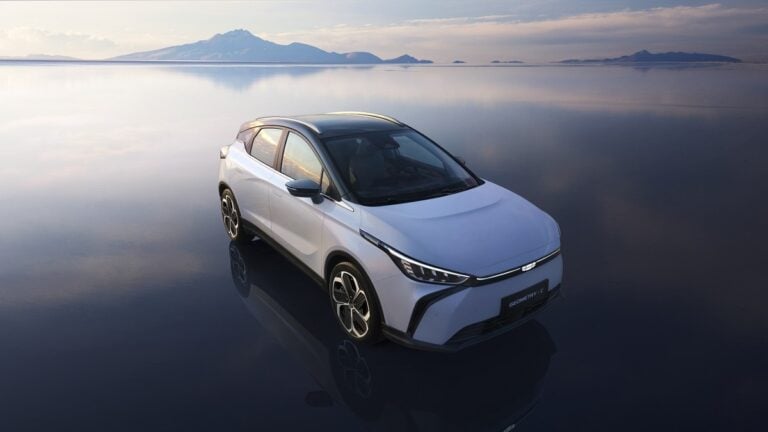
“We finished August with more than 12,500 cars on the road in less than two years,” says Yablon, adding that Geely will soon introduce a premium brand, Zeekr, to Israel.
Israel’s innovation culture has fueled a strong automotive technology sector in which there are companies developing solutions to take EVs into a more affordable and sustainable future.
Financial considerations
In addition to a smooth, quiet and responsive driving experience, EVs can be much cheaper to operate and maintain.
Many countries offer tax breaks and subsidies on purchasing, registering and charging the vehicles.

“Today, in Israel at least, it’s five to six times more expensive to own an ICE car than an EV,” says Katz.
“If you drive 20,000 kilometers per year you’d pay 10,000 shekels on fuel vs. 2,000 shekels for electricity, especially if you charge at more affordable places like at home.”
However, he continues, “Battery technology is still very expensive, and that’s a key factor in EV cost. Lithium-ion battery costs were supposed to go down but it hasn’t happened yet.”
What shade of green?
The lithium issue illustrates the complexity of assessing the environmental benefits of e-mobility.
Lithium mining consumes lots of water and energy, degrades soil and pollutes air and groundwater. Cobalt and graphite, also components of lithium-ion batteries, are becoming scarcer and more expensive.
Some Israeli companies would solve this problem by changing the chemistry of EV batteries. EExion, for instance, is replacing lithium with abundantly available pure carbon.
Another issue: While EVs have zero emissions – a definite plus in the fight against climate change and air pollution – they are charged on electric grids that, in most places, still get power from fossil fuels such as coal. And the more EVs on the road, the more electricity must be generated.
“We need more environmentally friendly sources of energy for transportation,” says Katz, noting that many countries are aggressively incentivizing investment in renewable energy generation and storage.
Then there’s the question of how to handle end-of-life batteries.
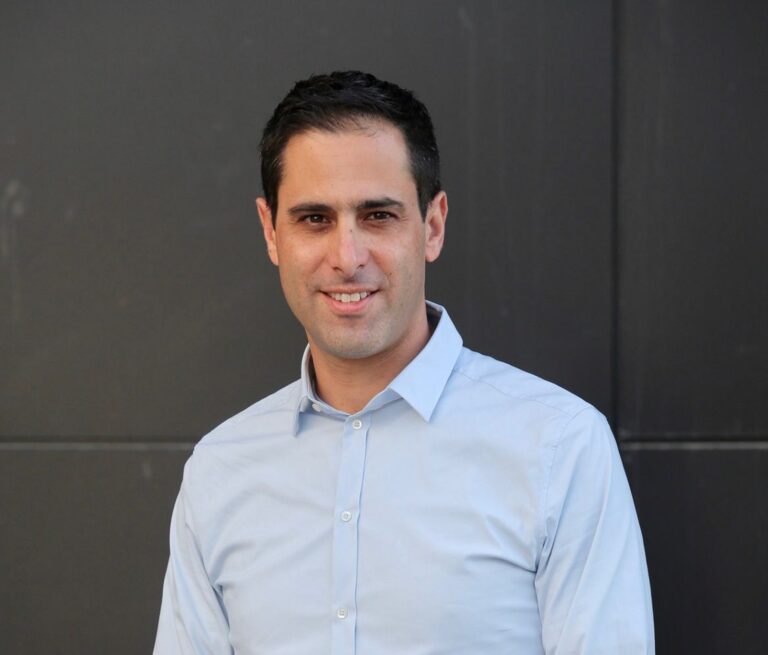
Yablon says that because the EV industry is young, nobody knows exactly how long the latest EV batteries last or the impact of their disposal.
“From what we see today from smaller batteries in hybrid cars, usually over 10 to 15 years the efficiency decreases slowly,” he says.
“I can tell you that Geely cars are on the road for close to two years and battery health is still 100%. The warranty that we give can reach up to 10 years or 200,000 kilometers, and the battery is guaranteed to stay at 70% of original efficiency or it gets repaired or replaced.”
Yablon adds that “a lot of industries are working on second-life solutions to recycle or reuse old EV batteries, maybe as backup power sources for home or industry.”
EV-Edge is repurposing batteries from trade-ins for energy storage, “to compensate in cases where you need additional power,” says Katz.
Building better batteries

“At the end of the day, the EV is a battery and a computer. The battery is the key component to control performance and economic benefits,” says Addionics CEO Moshiel Biton.
Six-year-old Addionics is changing the architecture of the battery to reduce cost and boost performance and longevity no matter what active material (lithium, carbon or something else) is used.
Biton likens the Addionics battery to a sandwich where the copper and aluminum electricity-conducting components are the bread and the active material is the cheese.
“We can put more ‘cheese’ on the ‘bread’ and put it inside the ‘bread’ as well, so we can have less ‘bread’ and more ‘cheese.’ Fewer materials means direct cost savings and reduced processing times,” says Biton.
“And because extreme temperatures – hot or cold — are a killer for batteries, Addionics dissipates the heat in a more homogeneous way, keeping its temperature more stable” to slow degradation.
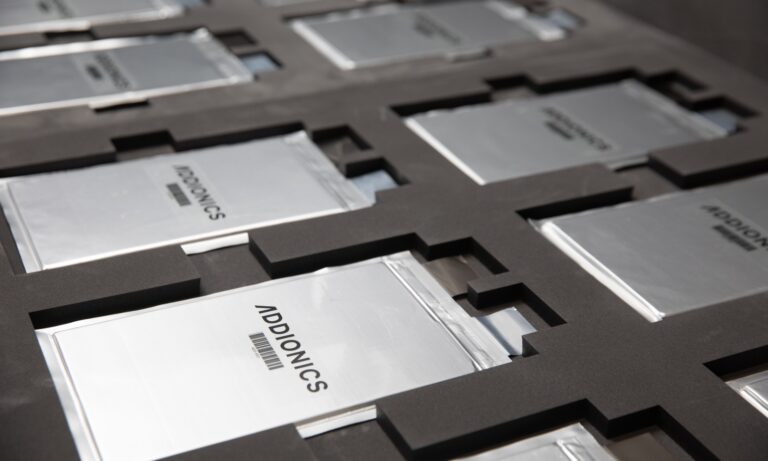
Addionics is now in the scale-up stage, having established partnerships with global automotive original equipment manufacturers as it moves toward full commercialization of its technology.
“China leads in batteries, from mining through production and recycling,” says Biton.
Companies such as Addionics could help Western nations compete with, and even offset, Chinese battery dominance.
Range anxiety
Although today’s EV batteries can get over 400 kilometers (about 300 miles) per charge, range anxiety remains a psychological barrier to the adoption of plug-in vehicles, says Geely’s Yablon.
The Geometry C is available in two battery sizes – giving 360k or 485k range – which is usually more than adequate for trips within Israel if not in larger countries.
However, improved range and charging infrastructure is critical in assuaging worries about running out of juice and how long it takes to recharge.
EV-Edge, Greenspot Smart Mobility and Driivz are among Israeli companies ramping up availability and ease-of-use of charge spots.
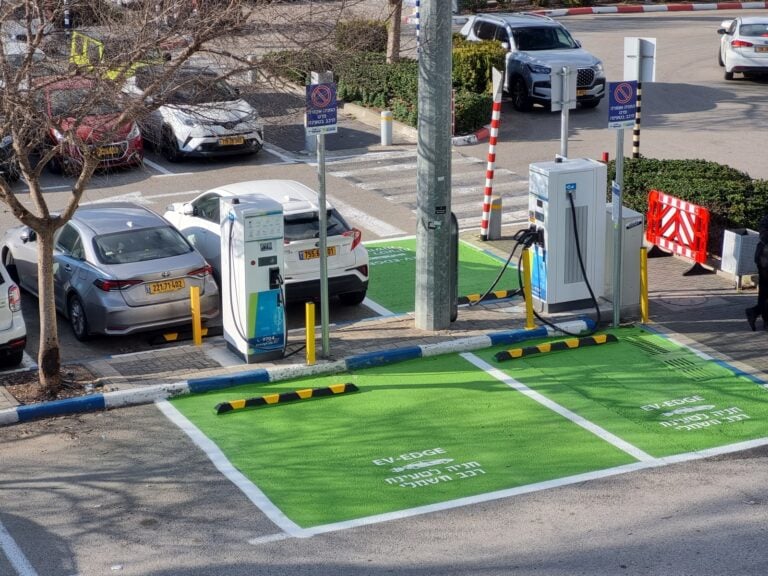
Charging isn’t a problem for EV owners with a dedicated home parking space and/or a place to plug in their car at work.
“Every household can spare 10 amps of electricity for charging the car for six to eight hours at night,” says Yablon, “and it helps the electricity company be more efficient by using more electricity in off-peak hours.”
He emphasizes that the exact same battery won’t perform exactly the same in different types of cars. Test-drive results reveal if a car’s declared range is accurate under real conditions.
“It’s not about only the battery but about the car’s electricity management system, braking system and aerodynamics, which differentiate one car from another.”
Eventually, says Yablon, EVs and charging stations will be equipped for smart charging, which will more efficiently utilize available power and enable the vehicle owner to sell electricity back to the grid.
Fast charging
Meanwhile, charging — including fast-charging — is still much slower than filling up a gas tank.
“From zero to full takes 60 to 70 minutes. However, an average fast charge takes only 30 minutes, whereas 80% of the charging is done at home or at the office, which is way more convenient than pulling over every week at a gas station,” says Katz.
One answer is building more fast-charging stations at shopping and entertainment centers and in the municipal public domain, or converting existing gas stations into fast-charge stations.
“These charges need more electrical capacity, 80 to 250 amps depending on the speed of charging,” says Yablon. Since most gas stations don’t have this type of capacity, electric companies will need to fix that in the coming years to meet demand.
Katz points out that it’s cheaper and safer to slow-charge EV batteries because frequent fast charging takes a lot of power and can strain and heat the battery. Fast charging should be done only when you’re pressed for time or running low on the go, he advises.
However, since superfast charging is the ultimate answer to range anxiety, Israeli companies are developing batteries and charging technology that speed up the process.
StoreDot plans to commercialize its “100 in 5” (100 miles’ worth of charge in five minutes) next-gen battery in 2024, and EExion and Addionics also promise quick charging.
Zooz Power is working with international partners to pilot its carbon-neutral, flywheel-based 15-minute kinetic charging stations in several countries. On September 13, the first commercial installation of the ZOOZTER-100 Power Booster – geared to locations where the grid is power-constrained — was initiated at a gas station in Rock Hill, South Carolina.
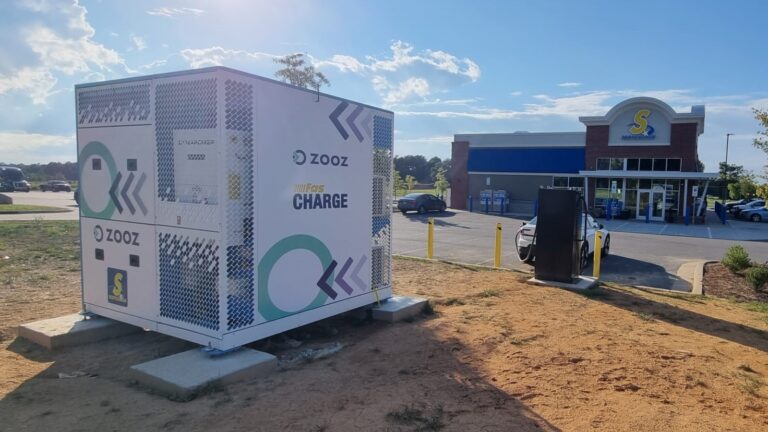
Unstoppable
So what’s the bottom line on electric vehicles?
While there are significant wrinkles to be ironed out, “the benefits to move right now to e-mobility greatly outweigh the alternative of staying with an ICE car,” Katz states.
And even if governments decrease incentives or even enact EV tax schemes, the shift to electric vehicles is unstoppable, adds Yablon.
“The industry is going that way whether the government supports it or not. At some point, carmakers will not make internal combustion engines.”




